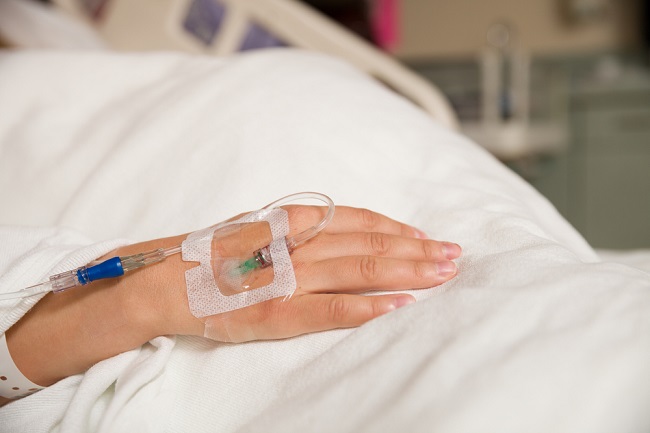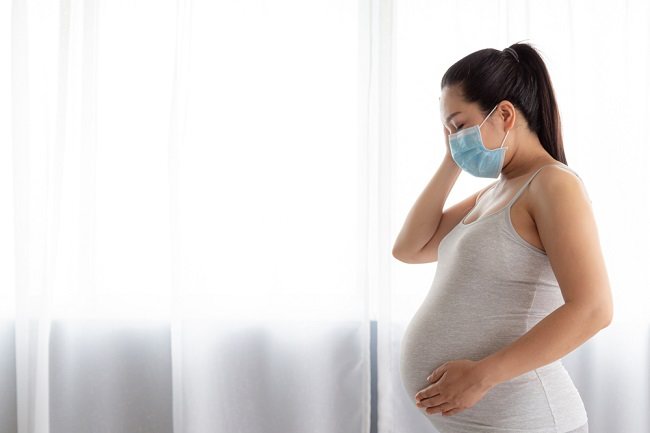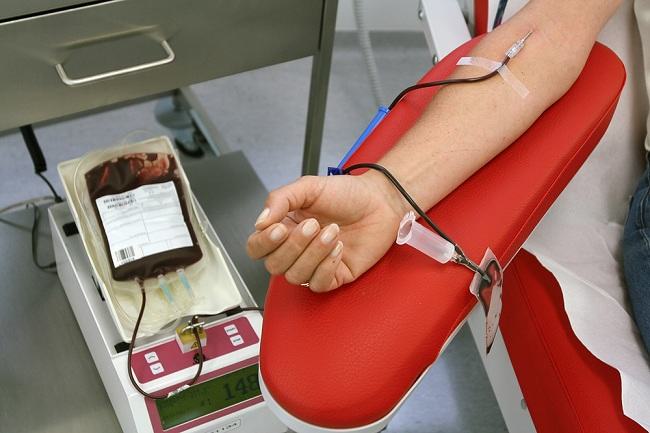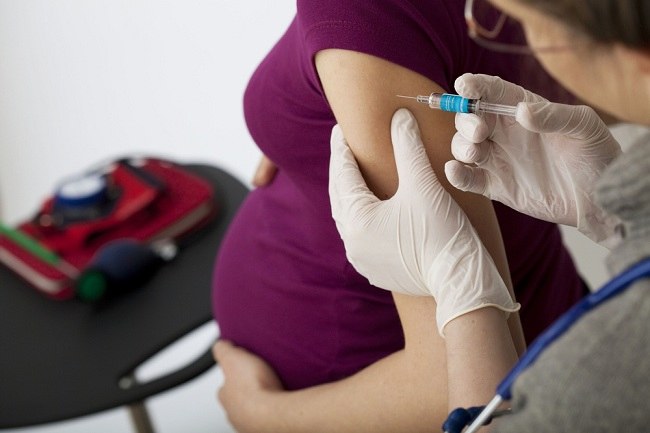DPostpartum depression is a condition that quite a lot of women experience after giving birth. It is estimated that about 10-15% of women experience this condition. However, many women who have just gone through labor do not realize that they are experiencing depression.
Postpartum depression or postpartum depression Usually occurs in the first 6 weeks after delivery. This type of depression is often confused with baby blues, even though they are two different conditions.

baby blues it usually subsides within days or weeks, whereas postpartum depression can last from a few weeks to a few months after delivery.
If not treated properly, postpartum depression can harm the condition of both the mother and the newborn.
Various Symptoms of Postpartum Depression
Many women often ignore feelings of sadness or emotion after giving birth for fear of appearing unhappy after becoming a mother.
In fact, negative emotions or feelings that often appear and do not improve after giving birth can be caused by postpartum depression.
The following are some of the symptoms of postpartum depression to watch out for:
- Persistent feelings of sadness or lack of enthusiasm
- Difficulty or reluctance to care for and interact with the baby
- Keep feeling sad for no apparent reason
- Not wanting to take care of yourself, for example, not wanting to take a shower or eat for days
- Loss of interest in things you used to like
- Constantly worrying and thinking that something is wrong with the baby
- Easily feel restless and offended
- Lack of sleep
- Difficult to concentrate
- There is a feeling of guilt and does not deserve to be a mother
- Thinking about hurting yourself or even committing suicide
These symptoms can become serious and can make it difficult for the sufferer to relate to others, be unable to care for the baby, and be reluctant to travel. In some cases, women with postpartum depression even think about hurting their baby.
Therefore, recognizing the symptoms of postpartum depression is not only important for mothers-to-be, but also for their partners, so that this condition can be quickly detected and treated immediately.
Causes and Risk Factors for Postpartum Depression
The exact cause of postpartum depression is not known. However, this condition is thought to be caused by a combination of various factors, including:
Hormonal changes
The levels of the hormones estrogen and progesterone in the body will decrease drastically in women after giving birth. Decreased levels of these two hormones cause women to be more sensitive, prone to mood swings, and emotional conditions become unstable.
Psychological problems
As a mother, women certainly have new demands and responsibilities to take care of and care for babies. This can be stressful and cause stress, especially if you don't have the support of your partner and loved ones during childbirth and caring for your baby.
In addition, women who have previously experienced psychological disorders, such as depression, bipolar disorder, and anxiety disorders, are also more at risk of developing postpartum depression.
Social problem
In addition to psychological problems, social problems can also be a factor in the occurrence of postpartum depression. Experiencing stressful events, such as financial problems, conflicts with family members, or the death of a loved one, can make women more susceptible to depression.
In addition to the above, there are several other factors that can increase the risk of postpartum depression, including:
- Difficulty breastfeeding
- Weak physical condition after giving birth
- Difficulty in taking care of the baby
- The baby has health problems, such as being born prematurely
- Postpartum health problems, such as pain from stitches or trouble urinating
- Going through a difficult labor process
Although not dominant, genetic factors are thought to also play a role in causing postpartum depression. In addition, women who have family members with a history of depression are also more at risk of developing this depression.
How to Deal with Postpartum Depression
Postpartum depression will be easier to cure if detected early and get treatment right away. The following are some of the measures to treat postpartum depression:
1. Psychotherapy
One of the main treatment steps for postpartum depression is counseling and psychotherapy, such as cognitive behavioral therapy.
Through this therapy, women who experience postpartum depression will be directed to find ways to deal with problems and feelings of sadness that arise, and face situations with more positive thoughts.
2. Administration of drugs
In addition to psychotherapy, doctors may also prescribe medications, such as antidepressants, to treat symptoms of depression. However, the use of drugs to treat depression must be under the supervision of a doctor, because the side effects can interfere with breast milk production.
3. Telling the closest person
Talking to your partner, family member, or friend about how you feel can also relieve stress and make you feel more relieved.
The support of those closest to you can be a very helpful factor in dealing with postpartum depression.
4. Regular exercise
Maybe you feel reluctant to exercise because you already feel tired of taking care of the baby. However, regular exercise can treat mild depression and make you feel better. In fact, there are several exercise options with your baby that you can do
You can start by doing light exercise, such as walking around the house, yoga, or pilates. However, before doing so, talk to your doctor first to find out what kind of exercise is right for your condition.
In addition to some of the ways above, you can also relieve stress by taking time for yourself. Do what you enjoy and get as much rest as possible. In addition, also try to keep meeting nutritional needs by running a healthy diet.
How to Prevent Postpartum Depression
The most effective way to prevent postpartum depression is to adopt a healthy lifestyle. In addition, there are several ways that can be done to reduce the risk of developing postpartum depression, including:
- Take care of yourself and try to reduce stress during pregnancy
- Receiving help from a partner or people closest to you
- Tell the doctor as soon as possible if you have a history or are experiencing psychological problems
If you are at high risk for postpartum depression, your doctor may prescribe antidepressants immediately after delivery to prevent symptoms from developing.
Keep in mind that postpartum depression can happen to anyone and can be caused by many things that are often not realized. Therefore, do not blame yourself if you experience this condition.
In addition, do not hesitate to immediately consult a psychiatrist if you start to feel symptoms of postpartum depression. A psychiatrist will help you and provide appropriate treatment to deal with this condition.









